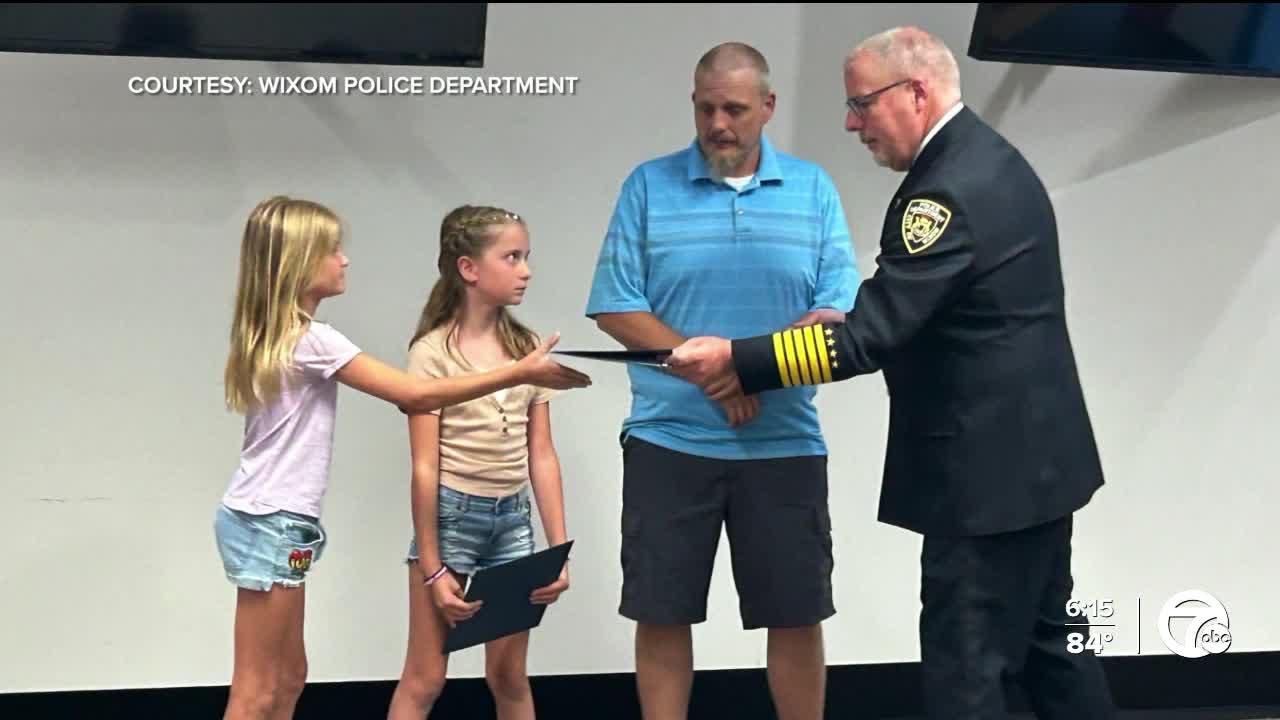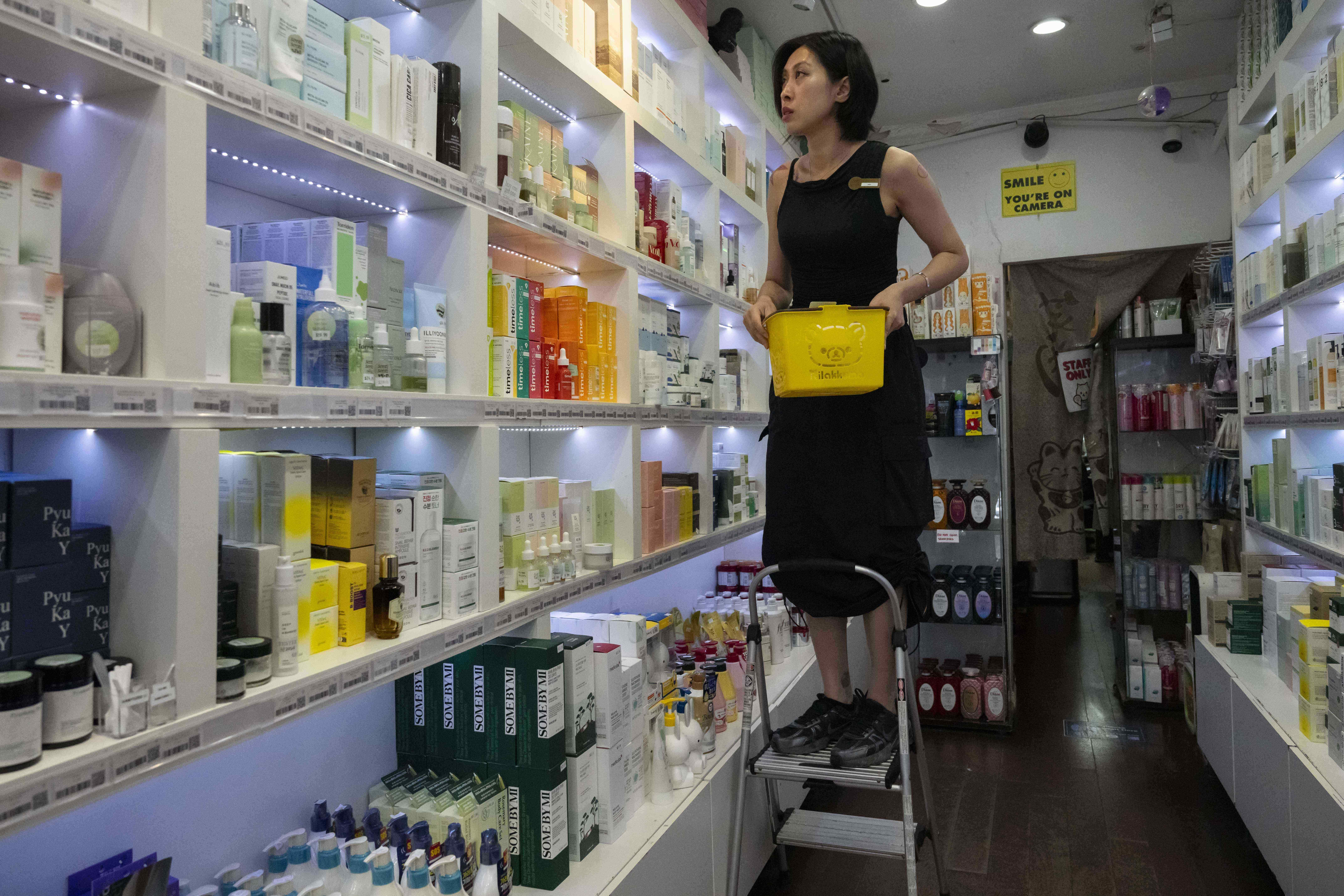In an interview with Scripps News, Holocaust survivor Aaron Elster had a lasting message for viewers.
"Extend a hand," Elster said. "What an impact you can make with such small things. We all live with insecurities. We need assurances. We need a friend. Be that friend."
Elster, who spent two years of his childhood hidden in a neighbor's attic in Poland, passed away in 2018.
Yet in the present, he's still here, answering any question. It's the very reason he says he was able to survive in that attic for two years.
"I don't know where I got this terrible desire, this almost unnatural desire, that I had to live, that I must live," Elster said. "I used to pray [to] God to let me live to 25. I wanted to taste what adulthood must be like. And here I am, over three times 25."
Before hiding in the attic, Elster was forced to live in a Polish ghetto with his family for two years. He escaped when Nazis came to deport everyone to a nearby death camp. He never saw his parents and younger sister again.
"My poor little sister, who was 6 years old, such a beautiful girl. For what purpose?" Elster said.

Hidden treasures likely owned by Jews 80 years ago unearthed in Poland
Many suspect the hundreds of items construction crews dug up in Lodz, Poland belonged to Jews who were hiding their valuables from the Germans.
Soon, there won't be anyone alive who survived the horrors of the Holocaust, who can answer future generations' questions.
But at the Illinois Holocaust Museum, cutting edge technology allows survivors like Elster to continue telling their stories in 3D.
Amanda Friedeman, the museum's associate director of education, worked with Elster for nearly 15 years.
"The last five years have been strange not having my friend, but we still have him through his hologram," Friedeman said. "Sometimes I do go in there and bring up Aaron's hologram and ask him to tell me a joke or one of my favorite stories just to have a little bit of time with my friend."
Elster and the 12 other survivors whose holograms are preserved at the museum spent days in a recording studio answering every imaginable question.
"He sat under thousands of lights and was asked over 1,500 questions about every aspect of his life," Friedeman said.
Five years ago, when Elster was alive and his hologram was brand new, Scripps News visited the museum and witnessed Elster surprising a group of school children after they had interacted with his virtual self.

New 3-D hologram forever preserves holocaust survivors
We explore how this interactive 3-D technology will allow Holocaust survivors to reach audiences beyond their own lifetimes.
"Seeing myself on the screen, the truth is I was crying, and it brought tears to my eyes," Elster said. "I was very emotional, and I don't understand why because I've said these things hundreds and hundreds of times. But that human being sitting there speaking directly to me, I was very much affected by that."
He said he believed a higher power helped him survive the Holocaust so he could bear witness to future generations.
"Once we're gone, will anybody talk about it? Will anybody remember what transpired, how our families were murdered for no reason, except that we were Jews?" Elster said.
With his hologram, Elster felt he and other survivors wouldn't be forgotten so easily.
"This allows me to leave a legacy of who I am, what I was, and continue to encourage, especially young people, to be the best that they can to make a difference, to stand up to the bully," Elster said.
Today, visitors say they feel privileged to interact with and learn from Elster years after he's passed away.
"I think every child in America should be able to see this," visitor Kathy Healan said. "I want to bring my grandkids."
"You can't have civilization or culture without memory, and watching that guy is bringing back the memory," visitor Jeffrey Carr said. "When you look at the hatred that is growing in our country and the lack of truth, it's important."

Holocaust survivors offered DNA tests to help find family
The New York-based Center for Jewish History is launching a project offering DNA testing kits for free to Holocaust survivors and their children.











